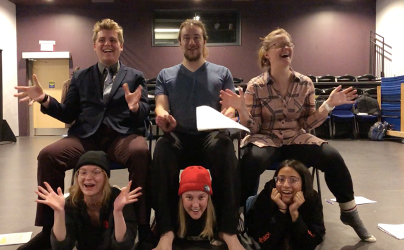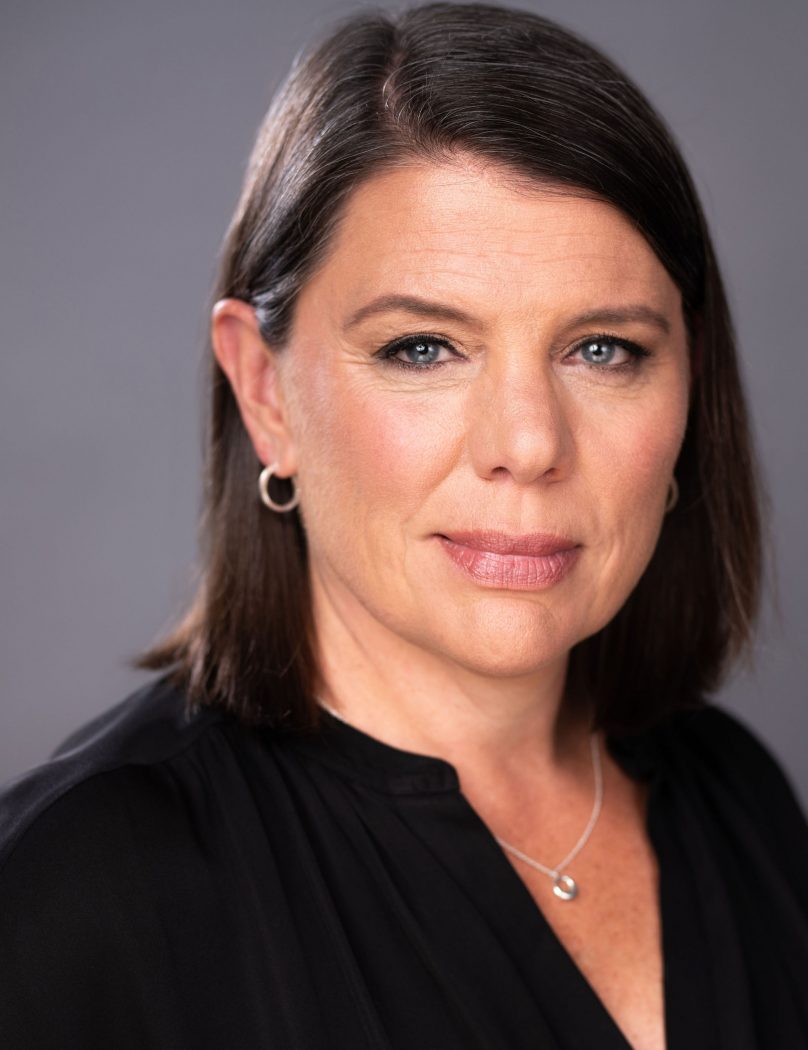Originally published in The Brock News TUESDAY, DECEMBER 15, 2020 | by Gillian Minaker
The shift to online learning has not stopped Brock Dramatic Arts and Faculty of Education students from connecting with newcomers, educators and theatre makers around the globe.
While in-person activities are limited or non-existent due to the pandemic, students in Social Issues Theatre for Community Engagement (DART 3F93) are virtually meeting with newcomers to learn about their journey to Canada.
The result is meaningful collaboration and the creation of applied theatre pieces rooted in issues of social justice.
Half of the students taking the course are studying Dramatic Arts. The other half are pursuing dramatic arts as a teachable subject through their Concurrent Education program, which allows students to earn both their undergraduate degree and a Bachelor of Education concurrently.
The Social Issues Theatre for Community Engagement course builds on a long history between the Department of Dramatic Arts (DART), Niagara Folk Arts Multicultural Centre (NFAMC) and Brock University.
In August 2019, a Memorandum of Understanding between Brock and the NFAMC was signed, solidifying a partnership between the two organizations aiming to address challenges for newcomers to Niagara and provide them with support through community-based actions. It was part of Brock’s ongoing community engagement efforts which create meaningful, mutually beneficial relationships that support social and economic development.
Over a number of years, DART has had many collaborations with the NFAMC that have enriched the educational and creative experiences of Brock students and community members.
This community engagement and scholarship continues to thrive online during the pandemic, offering students an experiential learning opportunity to gain valuable skills developed through the teachings of Dramatic Arts.
The year-long course is taught by Rachel Rhoades, Assistant Professor of Applied Theatre, Dramatic Arts. Rhoades has worked as an applied theatre practitioner, educator and researcher for 12 years in community- and school-based settings in Boston, Toronto and now at Brock.
Rhoades describes applied theatre as a creative tool for social change that is often mounted in non-traditional performance spaces and says different communities can come together to exchange stories of their lived experiences and create art based on these exchanges.
The outcome is evocative theatre that promotes learning and healthy discussion around strategies for change and social justice in marginalized communities.
In a photo taken prior to the COVID-19 pandemic, Brock students from Social Issues Theatre for Community Engagement (DART 3F93) rehearse their applied theatre play Identities Relocated at the Marilyn I. Walker School of Fine and Performing Arts.
Applied theatre techniques can assist communities in articulating issues, enhancing understanding of their complexity and planning future actions.
As learning shifted online this fall, Rhoades organized the “Global Guest Speaker Series” as part of the course. Each week, a guest artist facilitated virtual workshops.
As a result of these workshops, students and volunteer newcomers from Sudan, Saudi Arabia, Kuwait, Colombia, Jamaica, Mexico, Angola and China created theatre scenes together that were performed virtually as part of the course work.
Guest speakers have included: Brisa Areli Muñoz, Artistic Director of the Applied Theatre Collective, and Manager of Community Partnerships for The Public Theatre in New York City; Varshini Pichemuthu, co-founder of the RootPrints Theatre company in London, England; Taiwo Afolabi, Canada Research Chair in Theatre and many more from India, Singapore and Toronto.
Inviting guest speakers from the arts and education field is a way Rhoades is using online platforms to the classes’ advantage and embracing the opportunity to promote global connections during a time of isolation.
“The community members (newcomers) have expressed gratitude for the opportunity to share their stories and opinions on how to resolve major issues through their experiential knowledge,” Rhoades says.
Rhoades’ academic background in education and applied theatre is connected to her ongoing research. She is guiding young people to develop relationships with marginalized communities so there can be a mutually beneficial experience.
In this model, students listen to the experiences of newcomers allowing them to learn from a cross-cultural context. In turn, this process can help newcomers feel affirmed and valued, recognizing and honouring their strength through adversity.
“The students have gained much inspiration from hearing the stories of resilience from the community members, and the collaboration has really opened their eyes to the struggles of peoples around the world,” Rhoades says, adding that the students are improving as educators and artists, and also acquiring knowledge on strategies to demand and develop a more just society. Now, more than ever, these community collaborations are vital to a bright and inclusive future, she says.









